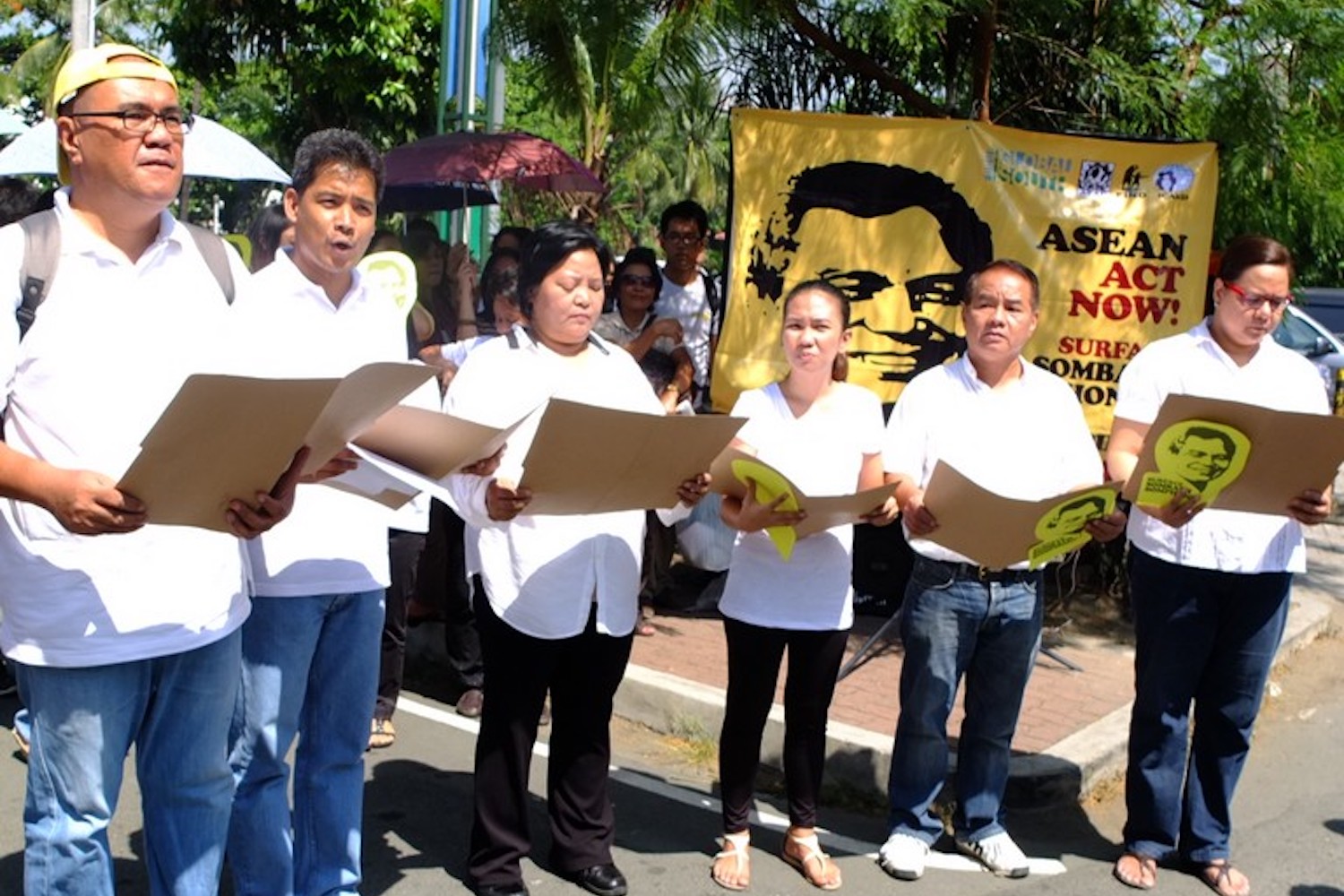 Human Rights Watch: 15 December 2017
Human Rights Watch: 15 December 2017
Disclose Sombath Somphone’s Fate or Whereabouts
The government of Laos should immediately disclose the fate or whereabouts of the prominent civil society leader Sombath Somphone who was forcibly disappeared in the capital, Vientiane, in December 2012, Human Rights Watch said today.
Sombath Somphone is still missing five years after he was forcibly disappeared in Vientiane, Laos. “Five years on, Sombath’s ‘disappearance’ highlights the glaring problems of enforced disappearance, widespread rights violations, and the culture of impunity protecting government officials in Laos,” said Phil Robertson, deputy Asia director. “The government needs to end its cover-up and explain what happened to Sombath.”
Sombath, the founder and former director of the Participatory Development Training Centre, received Southeast Asia’s prestigious Ramon Magsaysay Award for Community Leadership in 2005. Security camera footage shows police stopping Sombath’s jeep at 6:03 p.m. on December 15, 2012, and police taking him into the Thadeua police post. Shortly afterward, an unidentified motorcyclist stopped at the police post and drove off with Sombath’s jeep, leaving his own motorcycle by the roadside. A few minutes later, a truck with flashing lights stopped at the police post. Two people got out of the truck, took Sombath into the vehicle, then drove off. The authorities later denied any knowledge of Sombath being taken into custody. He has not been seen since.
Five years on, Sombath’s ‘disappearance’ highlights the glaring problems of enforced disappearance, widespread rights violations, and the culture of impunity protecting government officials in Laos. Phil Robertson, Deputy Asia Director
At a news conference in Bangkok on December 7, 2017, Shui-Meng Ng, Sombath’s wife, publicly revealed that people she declined to name had seen Sombath at a police holding facility in Vientiane on the night of December 15, a number of hours after he was publicly seen at the police checkpoint. She said that his jeep was seen at the parking lot of that facility on the same evening.
This newly public information demonstrates the inadequacy of the official investigations into Sombath’s disappearance and the contours of a cover-up by Lao authorities. The authorities have repeatedly dismissed concerns raised by Sombath’s family, foreign governments, and human rights groups about whether the government investigation was serious.
Shui-Meng Ng told Human Rights Watch:
Five years on, we are sadly no closer to finding Sombath than we were in the week after he was taken from us. The only thing that has progressed over that time is the Lao government’s cover-up, and the wall of denial and delays it has constructed to buy time. While disheartened, the friends of Sombath all around the world will never give up demanding answers.
Laos has signed, but not ratified, the International Convention for the Protection of All Persons from Enforced Disappearance (ICPPED). Enforced disappearances are defined under international law as the arrest or detention of a person by state officials or their agents followed by a refusal to acknowledge the deprivation of liberty, or to reveal the person’s fate or whereabouts. Enforced disappearances violate a range of fundamental human rights protected under international law, including prohibitions against arbitrary arrest and detention; torture and other cruel, inhuman, or degrading treatment; and extrajudicial execution. Disappearances are a continuing offense that cause anguish and suffering for the victim’s family members.
“Sombath’s ‘disappearance’ will be a stain on the Lao government’s reputation until his fate is explained and those responsible are fairly prosecuted and punished,” Robertson said. “Donor governments, UN agencies, and multilateral organizations should keep raising concerns with Lao leaders until there are credible answers about Sombath’s fate.”
 (Paris) The outcome of the United Nations’ (UN) assessment of the human rights situation in Laos highlighted the country’s highly repressive environment and the government’s failure to respect virtually all civil and political rights, FIDH and its member organization Lao Movement for Human Rights (LMHR) said today.
(Paris) The outcome of the United Nations’ (UN) assessment of the human rights situation in Laos highlighted the country’s highly repressive environment and the government’s failure to respect virtually all civil and political rights, FIDH and its member organization Lao Movement for Human Rights (LMHR) said today.







